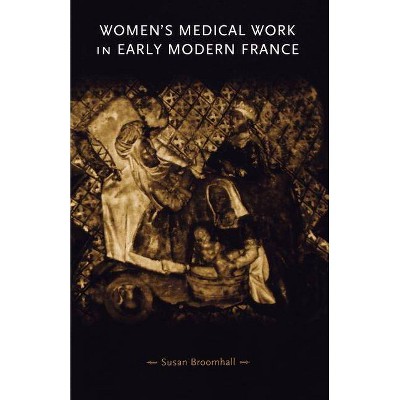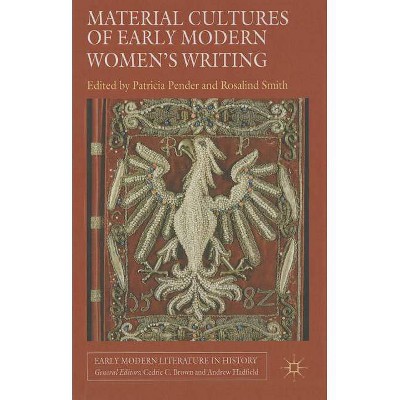Women's Medical Work in Early Modern France - (Gender in History) by Susan Broomhall (Paperback)

Similar Products
Products of same category from the store
AllProduct info
<p/><br></br><p><b> About the Book </b></p></br></br>Situates the practices and perceptions of women's medical work in France in the context of the sixteenth century and its medical evolution and innovations. The book argues that early modern understandings of medical practice and authority were highly flexible and subject to change.<p/><br></br><p><b> Book Synopsis </b></p></br></br>Women have long been crucial to the provision of medical services, both in the treatment of sickness and in maintaining health. In this study, Susan Broomhall situates the practices and perceptions of women's medical work in France in the context of the sixteenth century and its medical evolution and innovations. She argues that early modern understandings of medical practice and authority were highly flexible and subject to change. She furthermore examines how a focus on female practitioners, who cut across most sectors of early modern medical practice, can reveal the multifaceted phenomenon of these negotiations for authority. To uncover the medical work of women and to elucidate contemporary responses to female practitioners, Broomhall employs sources produced by a variety of authors and institutions, and a diverse range of materials such as manuscript and early printed works, personal correspondence, hospital and poor relief ledgers, and hagiographic and legal commentaries. Her research reveals that the medical care contributed by women encompassed such varied domains as surgery, child health, dietetics, primary emergency treatment, palliative care, culinary therapy, and hospital nursing. Moreover, Broomhall demonstrates not only the breadth of the medical situtations in which women worked, but also the differences in practices and perceptions produced by varied social and economic levels. Women's medical work in early modern France skilfully combines new and detailed research with a clear presentation of the existing literature of women's medical work, making it invaluable to students of gender and medical history.<p/><br></br><p><b> From the Back Cover </b></p></br></br>Women have long been crucial to the provision of medical services, both in the treatment of sickness and in maintaining health. In this study, Susan Broomhall situates the practices and perceptions of women's medical work in France in the context of the sixteenth century and its medical evolution and innovations. She argues that early modern understandings of medical practice and authority were highly flexible and subject to change. She furthermore examines how a focus on female practitioners, who cut across most sectors of early modern medical practice, can reveal the multifaceted phenomenon of these negotiations for authority. This new paperback edition of Women's medical work in early modern France skilfully combines detailed research with a clear presentation of the existing literature of women's medical work, making it invaluable to students of gender and medical history.<p/><br></br><p><b> Review Quotes </b></p></br></br><br><br>She is able to put together a coherent and impressive picture of women in health care, women functioning and writing about it for both male and female readerships. -- Chronique<p></p><br><br><p/><br></br><p><b> About the Author </b></p></br></br><br>Susan Broomhall is Winthrop Professor of Early Modern History at The University of Western Australia<br>
Price History
Price Archive shows prices from various stores, lets you see history and find the cheapest. There is no actual sale on the website. For all support, inquiry and suggestion messages communication@pricearchive.us




















